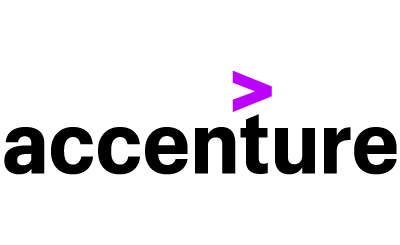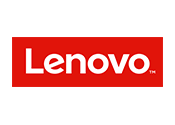November 18 – 21 | San Diego Convention Center, San Diego, California | #KubeCon #CloudNativeCon
KubeCon + CloudNativeCon North America 2019 Call for Proposals
The Call for Proposals (CFP) is now closed for KubeCon + CloudNativeCon North America 2019.
Speaker notifications will be sent out in early September.
For any questions regarding the CFP process, please email cfp@cncf.io.
GENERAL INFO
KubeCon + CloudNativeCon North America CFP Guide
KubeCon + CloudNativeCon brings together adopters, developers, and practitioners to collaborate face-to-face. Engage with the leaders of Kubernetes, Prometheus, and other CNCF-hosted projects as we set the direction for the cloud-native ecosystem.
Dates to Remember
- CFP Open: Monday, May 6
- CFP Close: Friday, July 12
- CFP Notifications: Tuesday, September 3
- Schedule Announced: Thursday, September 5
- Event Dates: November 18–21, 2019
Reminder: This is a community conference — so let’s try to avoid product and/or vendor sales pitches.
First Time Submitting? Don’t Feel Intimidated
CNCF events are an excellent way to get to know the community and share your ideas and the work that you are doing. You do not need to be a chief architect or long-time industry pundit to submit a proposal, in fact, we strongly encourage first-time speakers to submit talks for all of our events.
Our events are working conferences intended for professional networking and collaboration in the CNCF community and we work closely with our attendees, sponsors and speakers to help keep CNCF events professional, welcoming, and friendly. If you have any questions on how to submit a proposal or the event in general, please contact cfp@cncf.io.
Co-Chairs

Bryan Liles

Vicki Cheung
Requirements + Considerations
Requirements + Considerations
New for 2019:
Please read this blog post to learn more about how we select talks, what new changes we’ve made to the review process, and what you can do to increase the chances of your submission being accepted. *Note* There are NEW requirements for North America CFP since this blog post was published. Please see below.
Requirements:
- Any platforms or tools you are describing need to be open source.
- NEW: You are limited to be listed as a speaker on up to two proposals submitted to the CFP for consideration, regardless of the format.
- NEW: You may only speak on one accepted session chosen from the CFP at KubeCon + CloudNativeCon North America. (Note: Maintainer Track sessions are separate from CFP policies.)
- We will not select a submission that has already been presented elsewhere or at a previous KubeCon + CloudNativeCon. If your submission is very similar to a previous talk, please include information on how this version will be different. Specifically, if you gave a talk at KubeCon + CloudNativeCon in Europe or China 2019, please do not submit the same talk to North America 2019. It will automatically not be accepted to maintain content diversity.
Consider the Following as You Write Your Proposal:
- What do you expect the audience to gain from your presentation?
- Why should YOU be the one to give this talk? You have a unique story. Tell it.
- Be prepared to explain how this fits into the CNCF and overall Open Source Ecosystem.
We definitely do not expect every presentation to have code snippets and technical deep-dives but here are two things that you should avoid when preparing your proposal because they are almost always rejected due to the fact that they take away from the integrity of our events, and are rarely well-received by conference attendees:
- Sales or Marketing Pitches
- Unlicensed or Potentially Closed-Source Technologies
There are plenty of ways to give a presentation about projects and technologies without focusing on company-specific efforts. Remember the things to consider that we mentioned above when writing your proposal and think of ways to make it interesting for attendees while still letting you share your experiences, educate the community about an issue, or generate interest in a project.
HOW TO SUBMIT YOUR PROPOSAL
HOW TO SUBMIT YOUR PROPOSAL
We have done our best to make the submission process as simple as possible. Here is what you will need to prepare:
- Choose a submission format:
- Solo Presentation: 35-minute presentation, limited to 1 speaker
- Dual Presentation: 35-minute presentation, limited to 2 speakers
- Lightning Talk: A brief, 5-minute presentation, maximum of 1 speaker
- Panel: 35 minutes of discussion amongst 2 to 5 speakers
- Tutorial: 90-minute, in-depth, hands-on presentation with 1–4 speakers
Note: All submissions with 3–5 speakers are required to have at least one speaker that is a woman and the speakers must not all be from the same company.
- Choose which CNCF hosted software your presentation will be focused on (Choose all that apply):
- containerd (Graduated)
- CoreDNS (Graduated)
- Envoy (Graduated)
- Fluentd (Graduated)
- Kubernetes (Graduated)
- Prometheus (Graduated)
- CNI (Incubating)
- CRI-O (Incubating)
- etcd (Incubating)
- gRPC (Incubating)
- Harbor (Incubating)
- Helm (Incubating)
- Jaeger (Incubating)
- Linkerd (Incubating)
- NATS (Incubating)
- Notary (Incubating)
- Open Policy Agent (Incubating)
- OpenTracing (Incubating)
- Rook (Incubating)
- TiKV (Incubating)
- TUF (Incubating)
- Vitess (Incubating)
- Brigade (Sandbox)
- Buildpacks (Sandbox)
- CloudEvents (Sandbox)
- Cortex (Sandbox)
- Dragonfly (Sandbox)
- Falco (Sandbox)
- KubeEdge (Sandbox)
- Network Service Mesh (Sandbox)
- OpenEBS (Sandbox)
- OpenMetrics (Sandbox)
- OpenTelemetry (Sandbox)
- SPIFFE (Sandbox)
- SPIRE (Sandbox)
- Telepresence (Sandbox)
- Thanos (Sandbox)
- Virtual Kubelet (Sandbox)
Note: Final tracks for the conference will be based on accepted submissions.
- Choose a topic to narrow down the focus:
- Application & Development (includes Brigade, Helm & Telepresence)
- Case studies
- CI/CD
- Community
- Customizing & Extending Kubernetes
- Machine Learning & Data
- Networking (includes KubeEdge, NATS, CoreDNS, CNI, gRPC, & Network Service Mesh)
- Observability (includes Prometheus, Jaeger, Fluentd, Cortex, OpenTelementry, Thanos, & OpenTracing)
- Operations
- Performance
- Runtimes (includes containerd & CRI-O)
- Security, Identity & Policy (includes Notary, OPA, SPIFFE/SPIRE, and TUF)
- Serverless (includes CloudEvents)
- Service Mesh (includes Envoy, & Linkerd)
- Storage (includes Vitess, OpenEBS & Rook)
- Provide a detailed and focused description with a max of 900 characters. This is what will be used on the online schedule if your talk is accepted.
- Provide more in-depth information in the “Benefits to the Ecosystem” section. This is your opportunity to elaborate on your content and share any more details with the committee with a max of 1,500 characters.
- Provide a biography for all speakers, including previous speaking experience.
- Provide resources to enhance your proposal. These can be videos of you or your speakers presenting elsewhere, links to personal websites (including LinkedIn), links to your open source projects, or published books.
- If you choose to submit a tutorial please explicitly mention what the audience will learn from or walk away with after attending your session. Additionally, please indicate what prerequisites (if any) are needed for the attendee to know prior to attending, and if any materials should be brought with them or downloaded ahead of time (i.e. must install Python 2.7.15) prior to attending.
SAMPLE SUBMISSION + SCORING GUIDELINES
SAMPLE SUBMISSION
Your abstract will be the cornerstone of your proposal.
This is your chance to *sell* your talk to the program committee, so do your best to highlight the problem/contribution/work that you are addressing in your presentation. The technical details are still important, but the relevance of what you are presenting will help the program committee during the selection process.
This is the abstract that will be posted on the website schedule, so please ensure that it is in complete sentences (and not just bullet points), free of typos and that it is written in the third person (use your name instead of “I”).
Example:
Kernel Weather Report (Jon Corbet, LWN.net) – The Linux kernel is at the core of any Linux system; the performance and capabilities of the kernel will, in the end, place an upper bound on what the system can do as a whole. In this presentation, Jon Corbet will review recent events in the kernel development community, discuss the current state of the kernel, the challenges it faces, and look forward to how the kernel may address those challenges.
Scoring Guidelines
To help you further understand what is considered while the program committee and co-chairs are reviewing your proposal, please review the Scoring Guidelines and Best Practices page.
TRAVEL SUPPORT + SPEAKERS PASSES
TRAVEL SUPPORT + SPEAKERS PASSES
If you require travel support, you will be given the chance to apply for travel funding upon acceptance. Only speakers whose talks are accepted will be considered for travel funding.
All accepted speakers and panelists will receive a complimentary conference pass.
CODE OF CONDUCT
CODE OF CONDUCT
The Linux Foundation and its project communities are dedicated to providing a harassment-free experience for participants at all of our events. We encourage all submitters to review our complete Code of Conduct.
CFP QUESTIONS?
If you have any questions regarding the CFP process, please contact Nanci Lancaster: cfp@cncf.io
SPONSORS
DIAMOND
PLATINUM
GOLD
SILVER
START-UP
END USER
MEDIA PARTNERS
CONTACT US
Before contacting us, please review all event pages as answers to many questions are readily available throughout this site. If you cannot find the answer to your question and would prefer to email us, please contact events@cncf.io.
Stay Connected With Our Newsletter
Sign up to be kept up-to-date on the latest developments around KubeCon + CloudNativeCon, like keynote announcements, important schedule and event notifications, exclusive offsite activities, and more.



